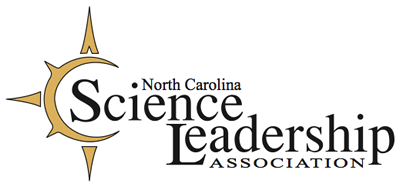Position Statement
A Quantum Leap Required in NC Science Education
North Carolina must make science education a priority in a manner that is unprecedented in the state’s history. In 1957, with fear and wonder, Americans witnessed Sputnik, the first manmade (Russian) satellite. This posed a serious military threat to the country and its status as the world’s leader in science. Subsequently, the National Defense Education Act was approved by Congress in 1958, leading to greatly enhanced science education nationally. Now, more than 50 years later, the threat is an economic oneand the future belongs to the world regions that possess the capacity for scientific innovation. Innovation is a hallmark of American culture. Woven with the tools of mathematics, language, and technology it remains, perhaps, our last economic advantage. However, its essence is mercurial and will slip away without early, motivating science experiences leading to the rigorous engagement of all students beginning in elementary school. A quantum leap in science education requires attention to several key components.
- Accountability. Entire school communities must be rewarded according to the quality of their science program. This can only be accomplished if the same message resonates in the highest levels of North Carolina state government. The past years have demonstrated that high stakes testing drives classroom function. Unfortunately, this has transformed science into a fringe subject and, unwisely, distanced it from mathematics and language.
- Time. Good science education needs a lot of it and it is the single best method to improve performance. Presently, instructional time for science is clearly inadequate. At the K-5 level, it may be at a historic low. Four years of science are required at the 9-12 level. Even then we must query, “Can we compete globally with only five hours of science per week?” Laboratory experiences are essential and additional innovative methodologies, such as project-based learning, science competitions, utilization of informal science facilities, and direct access to scientific research must find their way into common practice.
- Professional Development. Great science teachers possess considerable content knowledge, the very apparent desire to inquire and build that knowledge, and familiarity with the procedures of science that produce knowledge. Good teachers can become great teachers when sufficient time and resources are provided for studying science content and developing the pedagogical practices that promote the learning of science. Pre-service education must also be targeted. A proposal put forth by the NC Science, Mathematics and Technology Education Center calls for five or more science content courses for prospective K-8 teachers; in concert with that would be a 5% - 10% beginning pay increase.
- Materials. Veteran science teachers know that materials procurement, preparation, and maintenance are challenging aspects of the profession. North Carolina needs to support these efforts in a structured, aggressive fashion by providing adequate funding for the materials and facilities required to teach science in an authentic, investigative fashion that truly reflects the nature of scientific endeavor.
Daily, scientific problems and issues punctuate the media. Innovators in health, environment, computers, nanotechnology and other fields will benefit from new economic drivers. How serious are we in assuring that North Carolina students will be the innovators? That is no longer a guarantee simply by their place of birth. In a “hot, flat and crowded” world they will need every advantage we can give them. A world-class K-12 science program is the best means of ensuring economic success for North Carolina and its children.
Published Fall 2009
